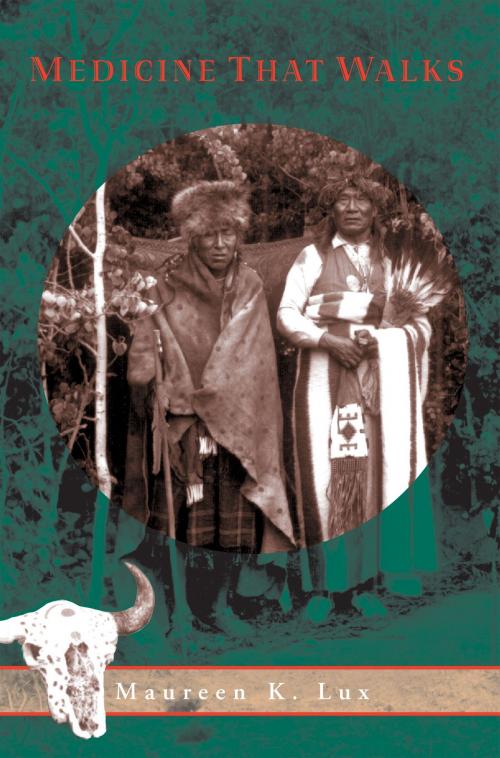Medicine that Walks
Disease, Medicine, and Canadian Plains Native People, 1880-1940
Nonfiction, History, Americas, Canada, Social & Cultural Studies, Social Science, Cultural Studies, Native American Studies| Author: | Maureen Lux | ISBN: | 9781442658783 |
| Publisher: | University of Toronto Press, Scholarly Publishing Division | Publication: | December 15, 2001 |
| Imprint: | Language: | English |
| Author: | Maureen Lux |
| ISBN: | 9781442658783 |
| Publisher: | University of Toronto Press, Scholarly Publishing Division |
| Publication: | December 15, 2001 |
| Imprint: | |
| Language: | English |
In this seminal work, Maureen Lux takes issue with the 'biological invasion' theory of the impact of disease on Plains Aboriginal people. She challenges the view that Aboriginal medicine was helpless to deal with the diseases brought by European newcomers and that Aboriginal people therefore surrendered their spirituality to Christianity. Biological invasion, Lux argues, was accompanied by military, cultural, and economic invasions, which, combined with the loss of the bison herds and forced settlement on reserves, led to population decline. The diseases killing the Plains people were not contagious epidemics but the grinding diseases of poverty, malnutrition, and overcrowding.
"Medicine That Walks" provides a grim social history of medicine over the turn of the century. It traces the relationship between the ill and the well, from the 1880s when Aboriginal people were perceived as a vanishing race doomed to extinction, to the 1940s when they came to be seen as a disease menace to the Canadian public. Drawing on archival material, ethnography, archaeology, epidemiology, ethnobotany, and oral histories, Lux describes how bureaucrats, missionaries, and particularly physicians explained the high death rates and continued ill health of the Plains people in the quasi-scientific language of racial evolution that inferred the survival of the fittest. The Plains people's poverty and ill health were seen as both an inevitable stage in the struggle for 'civilization' and as further evidence that assimilation was the only path to good health.
The people lived and coped with a cruel set of circumstances, but they survived, in large part because they consistently demanded a role in their own health and recovery. Painstakingly researched and convincingly argued, this work will change our understanding of a significant era in western Canadian history.
Winner of the 2001 Clio Award, Prairies Region, presented by the Canadian Historical Association, and the 2002 Jason A. Hannah Medal
In this seminal work, Maureen Lux takes issue with the 'biological invasion' theory of the impact of disease on Plains Aboriginal people. She challenges the view that Aboriginal medicine was helpless to deal with the diseases brought by European newcomers and that Aboriginal people therefore surrendered their spirituality to Christianity. Biological invasion, Lux argues, was accompanied by military, cultural, and economic invasions, which, combined with the loss of the bison herds and forced settlement on reserves, led to population decline. The diseases killing the Plains people were not contagious epidemics but the grinding diseases of poverty, malnutrition, and overcrowding.
"Medicine That Walks" provides a grim social history of medicine over the turn of the century. It traces the relationship between the ill and the well, from the 1880s when Aboriginal people were perceived as a vanishing race doomed to extinction, to the 1940s when they came to be seen as a disease menace to the Canadian public. Drawing on archival material, ethnography, archaeology, epidemiology, ethnobotany, and oral histories, Lux describes how bureaucrats, missionaries, and particularly physicians explained the high death rates and continued ill health of the Plains people in the quasi-scientific language of racial evolution that inferred the survival of the fittest. The Plains people's poverty and ill health were seen as both an inevitable stage in the struggle for 'civilization' and as further evidence that assimilation was the only path to good health.
The people lived and coped with a cruel set of circumstances, but they survived, in large part because they consistently demanded a role in their own health and recovery. Painstakingly researched and convincingly argued, this work will change our understanding of a significant era in western Canadian history.
Winner of the 2001 Clio Award, Prairies Region, presented by the Canadian Historical Association, and the 2002 Jason A. Hannah Medal















